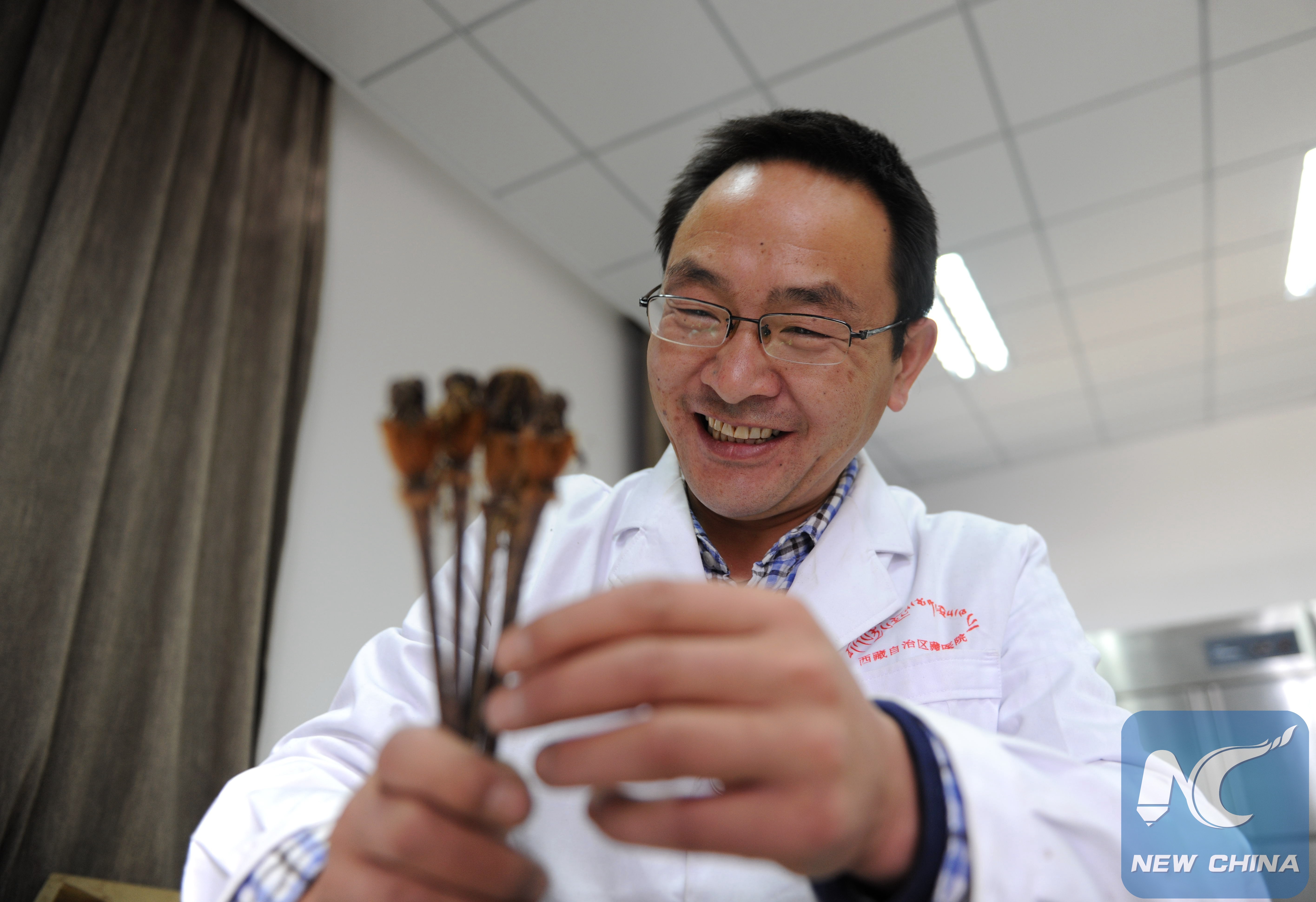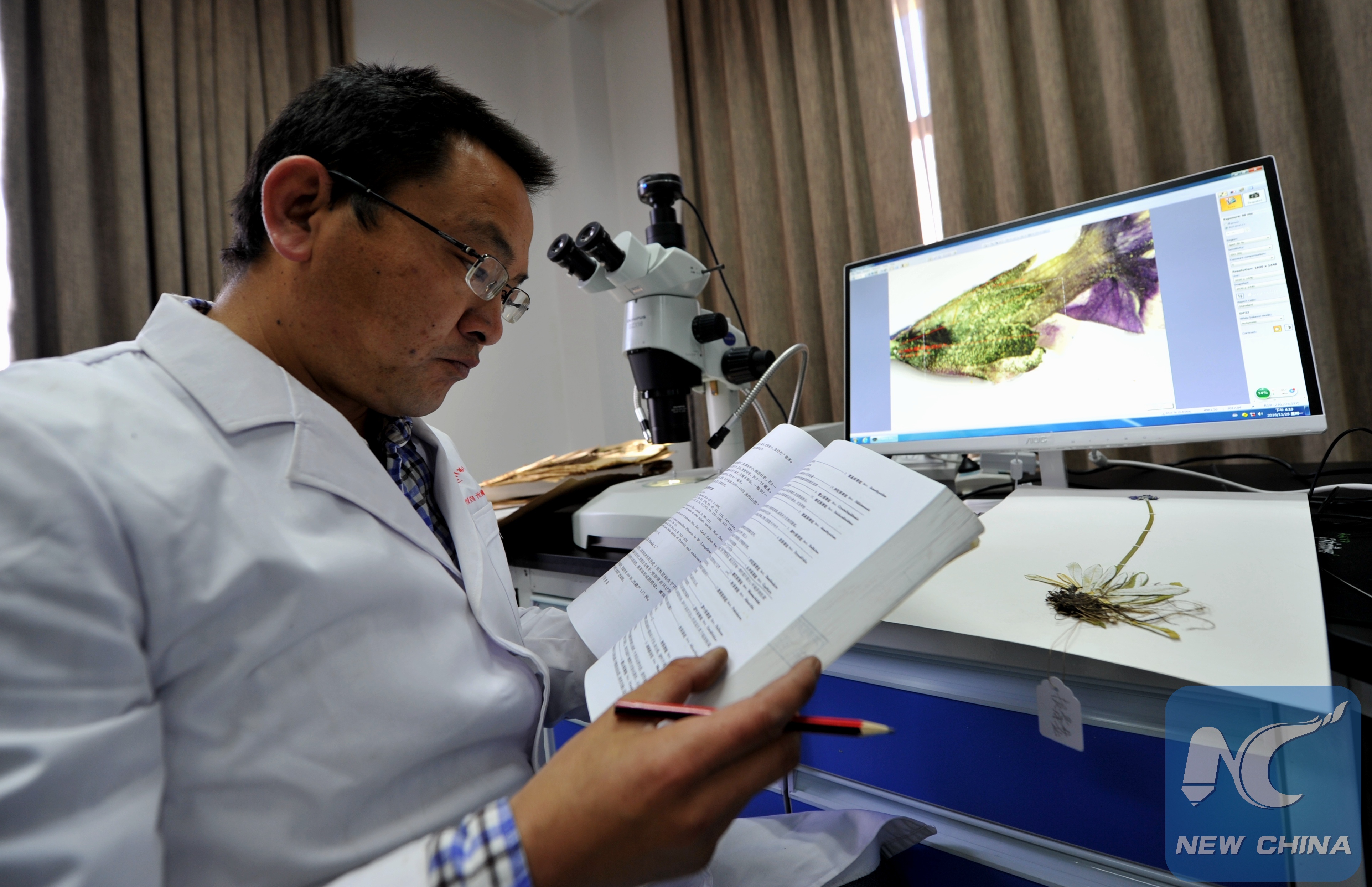
Tashi Tsering has done something many considered impossible: He has successfully cultivated blue poppy, a rare and endangered herb that grows above the snow line of the Himalayas, in lab with his team. The herb is believed to be effective for treating liver diseases in traditional Tibetan medicine.

Tashi, deputy director of Tibetan Medicine Research Center of the Tibetan Medicine Hospital in Lhasa, began this research in 2009, a mission thought impossible by many, including foreign researchers, as the herb can only survive in the alpine region--currently at an altitude above 5,000 meters as a result of shrinking snow line due to global warming in recent years.

The 41-year-old researcher has worked on Tibetan medicine for nearly two decades since he graduated from a prestigious medical university in Liaoning Province, northeast China.

Tashi and his team have been to many places in Tibet and its neighboring provinces of Sichuan, Gansu, Qinghai and Yunnan on the Qinghai-Tibet Plateau. "However, our first trial yielded nothing," says Tashi. Despite their hard efforts of an entire year in 2011, the team's experimental field failed to see one single seedling of blue poppy. But they never gave up.
Thanks to almost seven years of efforts, the team finally succeeded in 2005. According to Tashi, the germination rate this year has reached 87%. "But there is still a long way to go for commercial plantation," said Tashi.

In recent years, both the central and regional governments have enhanced their support for the artificial planting of endangered herbs for Tibetan medicine use. A new research center has been set up with the governmental funding in Tashi's test base. Over the past 10 years, Tashi and his team have successfully grown 27 endangered herbs for traditional medicine.
Tashi said that the demand for Tibetan medicine is expected to increase with improving technology. "Artificial planting will make a difference."

